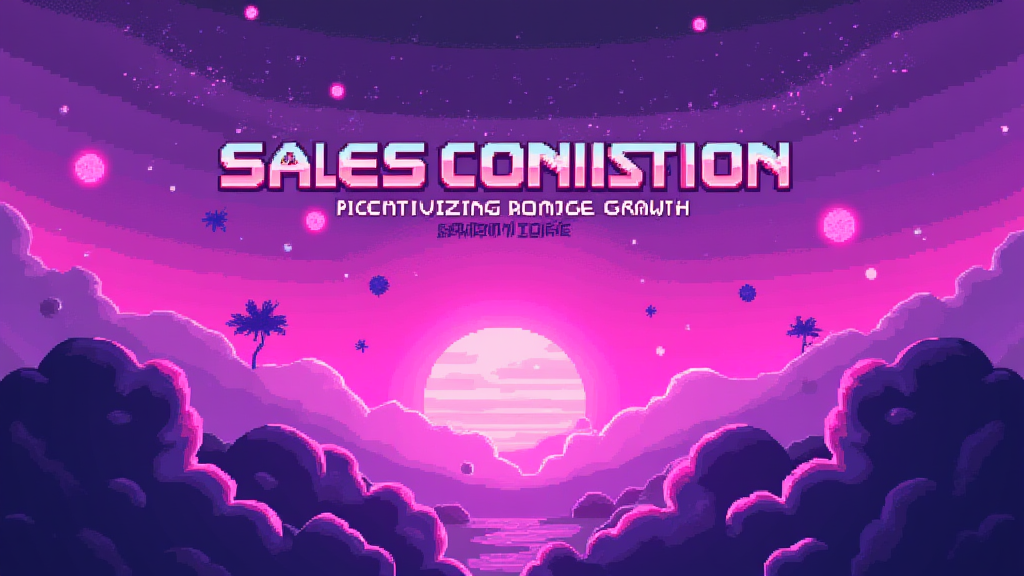Sales Commission: Incentivizing Revenue Growth

Published on: October 01, 2024
Sales commission is a performance-based compensation model that rewards salespeople for successfully closing deals and generating revenue for their company. This incentive structure is designed to motivate sales professionals to achieve and exceed their targets, ultimately driving business growth. 💼💰
Understanding Sales Commission
At its core, a sales commission is a percentage of the sale value or a fixed amount paid to a salesperson for each successful transaction. The commission structure can vary widely depending on the industry, company size, and specific sales role. Here are some key aspects of sales commissions:
- Motivation tool for sales teams
- Aligns individual performance with company goals
- Encourages proactive selling and customer acquisition
- Can be a significant portion of a salesperson's total compensation
Types of Sales Commission Structures
Companies employ various commission structures to suit their business models and sales strategies. Some common types include:
- Straight Commission: Salespeople earn a fixed percentage of each sale, with no base salary.
- Base Salary + Commission: A combination of a fixed salary and a commission on sales.
- Tiered Commission: Commission rates increase as salespeople hit higher sales targets.
- Gross Margin Commission: Commission based on the profit margin of each sale, not just the revenue.
- Draw Against Commission: Salespeople receive a guaranteed minimum amount, which is deducted from future commissions.
Sales Commission in Different Industries
Commission structures can vary significantly across industries. Here's a comparison of average commission rates in some common sectors:
| Industry | Average Commission Rate |
|---|---|
| Real Estate | 5-6% of property value |
| Car Sales | 20-30% of dealer profit |
| Software Sales | 10-20% of sale value |
| Insurance Sales | 30-100% of first-year premium |
Calculating Sales Commission
The formula for calculating sales commission can vary based on the structure, but a basic calculation is:
Commission = Sale Value × Commission Rate
For example, if a real estate agent sells a $300,000 house with a 6% commission rate, their commission would be:
$300,000 × 0.06 = $18,000
Benefits and Challenges of Sales Commissions
Benefits 👍
- Motivates salespeople to perform at their best
- Directly ties compensation to company revenue
- Attracts top sales talent
- Can reduce fixed salary costs for employers
Challenges 👎
- May lead to aggressive or unethical sales practices
- Can create income instability for salespeople
- Might foster unhealthy competition within teams
- Complex structures can be difficult to administer
Implementing an Effective Sales Commission Structure
To create a successful sales commission plan, consider these best practices:
- Align commission structure with company goals
- Keep it simple and easy to understand
- Ensure the plan is fair and achievable
- Regularly review and adjust the structure as needed
- Provide clear communication and transparency
The Future of Sales Commissions
As the sales landscape evolves, so do commission structures. Trends to watch include:
- Integration of AI and data analytics in commission calculations
- Emphasis on customer satisfaction and retention metrics
- Shift towards team-based commission structures
- Incorporation of non-monetary incentives
To implement an effective sales commission structure in your organization, consider asking yourself these questions:
- How does our current commission structure align with our business goals?
- Are our salespeople motivated by the existing commission plan?
- How can we balance individual and team performance in our commission structure?
- What metrics beyond revenue should we consider in our commission calculations?
- How often should we review and adjust our commission structure?
For more insights, explore our sales compensation strategies and check out the commission tracking tools to enhance your sales performance.
















